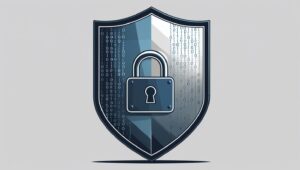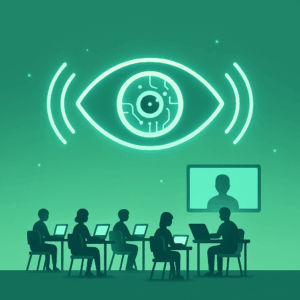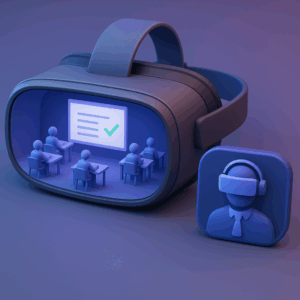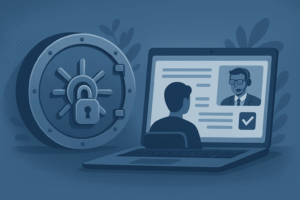In today’s digital age, the world of education is rapidly evolving with the integration of technology. One of the most notable advancements in recent years is the shift toward online exam software and online proctoring. Unlike traditional pen-and-paper exams, online proctored exams offer numerous advantages to students and institutions. We will explore the benefits of online proctored exams and how they change the education landscape.
With the convenience of taking an exam from the comfort of your home, online proctoring has many advantages over traditional pen-and-paper tests. In this blog, we’ll explore the top benefits of online proctored examinations, including increased security measures, cost-effectiveness, and accessibility for remote learners.
Major Disadvantages of Traditional Pen and Paper Exams

While traditional paper exams are popular for many years as a way of assessing student knowledge and understanding, they do have disadvantages as compared to exams with remote proctoring:
Accessibility Limitation: Traditional examination systems are typically conducted in a physical classroom, making them inaccessible to students who cannot attend due to distance or other factors. On the other hand, an online examination system can help take tests from anywhere with an internet connection, making them more accessible for students.
Reduced Security: Paper-Based Testing can be vulnerable to cheating and fraud, particularly if the exam does not have a close monitoring mechanism. On the other hand, online proctored exams on online exam systems typically use advanced security features. Checkpoints such as biometric identification and video monitoring ensure that the intended student takes the exam and that cheating incidences are fewer.
Limited Feedback: Pen and paper exams may not provide students with immediate feedback on their performance, as grading can take some time. On the other hand, online proctored exams can give instant feedback to students. This can help them identify areas where they need to improve.
No Customization: Pen and paper exams may differ from the online examination system. With online proctored exams, teachers can create exams with various question types. Also, they can customize the exam based on the specific needs of their students.
Lack of Flexibility: Pen and paper exams are typically conducted at a specific time and location, limiting the flexibility of both teachers and students. On the other hand, online proctored exams have the convenience of location, providing greater flexibility and convenience.
Stressful Environment: Pen and Paper exams can be stressful for students, particularly those who struggle with test anxiety. The high-pressure environment of an exam can cause some students to perform poorly, even if they understand the material well.
While traditional pen-and-paper exams can be useful for assessing student learning, several limitations should come under consideration. Especially while choosing an assessment method over online proctoring-based tests on an online examination platform.
Why One Should Consider Online Proctored Exams instead of Pen and Paper Ones

There are several reasons why online exams with proctoring can be more useful than pen-and-paper exams:
Convenience: Online proctored exams can be taken from anywhere at any time, as long as you have a reliable internet connection. This makes it much more convenient for students. Especially those who may have other commitments or live far from the exam center.
Security: Online proctored tests are typically more secure than pen-and-paper exams. Proctoring software can use features like facial recognition and keystroke analysis to verify the student’s identity and prevent cheating. Online proctored exam cheating incidents are scarce in comparison to conventional testing ones.
Cost-Effective: Exams with remote proctoring can be more cost-effective than pen-and-paper exams because there is no need to print exam papers, hire invigilators, or rent physical exam centers.
Timely Feedback: With online proctored exams, students can receive their results immediately after finishing the exam. This allows them to identify areas they need to improve and work on them immediately.
Flexibility: Online proctored exams can be more flexible regarding the types of questions and their format. For example, they can include multimedia elements like videos, images, and audio recordings. These can help assess a wider range of skills and knowledge.
Online proctored exams can be more convenient, secure, cost-effective, and flexible than pen-and-paper exams. Also, online proctoring is essential to mitigate cheating in online exams. However, it is important to note that not all exams are suitable for online proctoring.
Summing Up:
In conclusion, online proctored exams offer numerous advantages over traditional pen-and-paper exams. They provide greater flexibility, convenience, and accessibility to students while reducing the potential for cheating. Also, they ensure the integrity of the exam. Moreover, online proctored exams utilize advanced technologies and innovative features. These enhance the testing experience for students and streamline the exam administration process for educators. With the increasing popularity of online learning and remote education, coupling them with online proctoring is advisable. Hence it is becoming the choicest assessment method for many educational institutions and organizations. As we continue to navigate the challenges of modern education, online proctored exams offer a reliable and effective solution for testing and evaluating student knowledge and skills.











